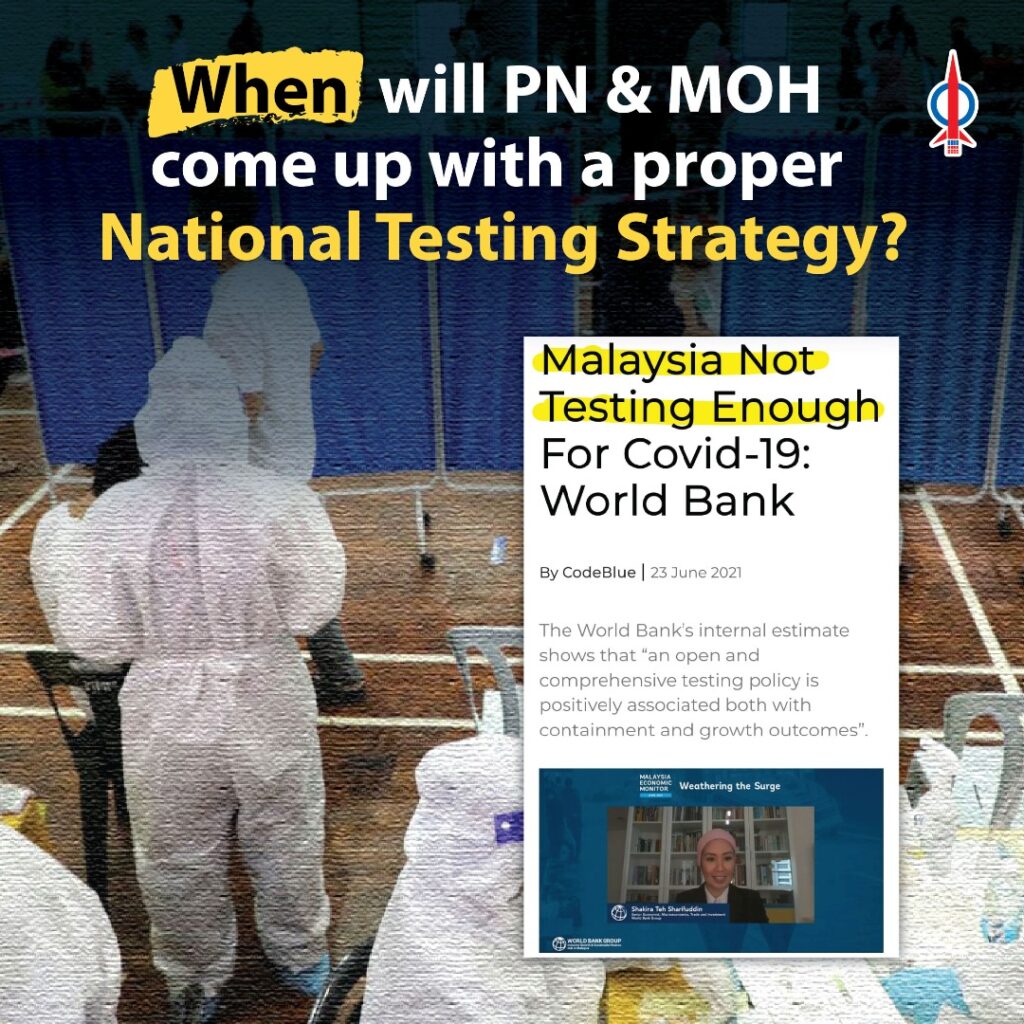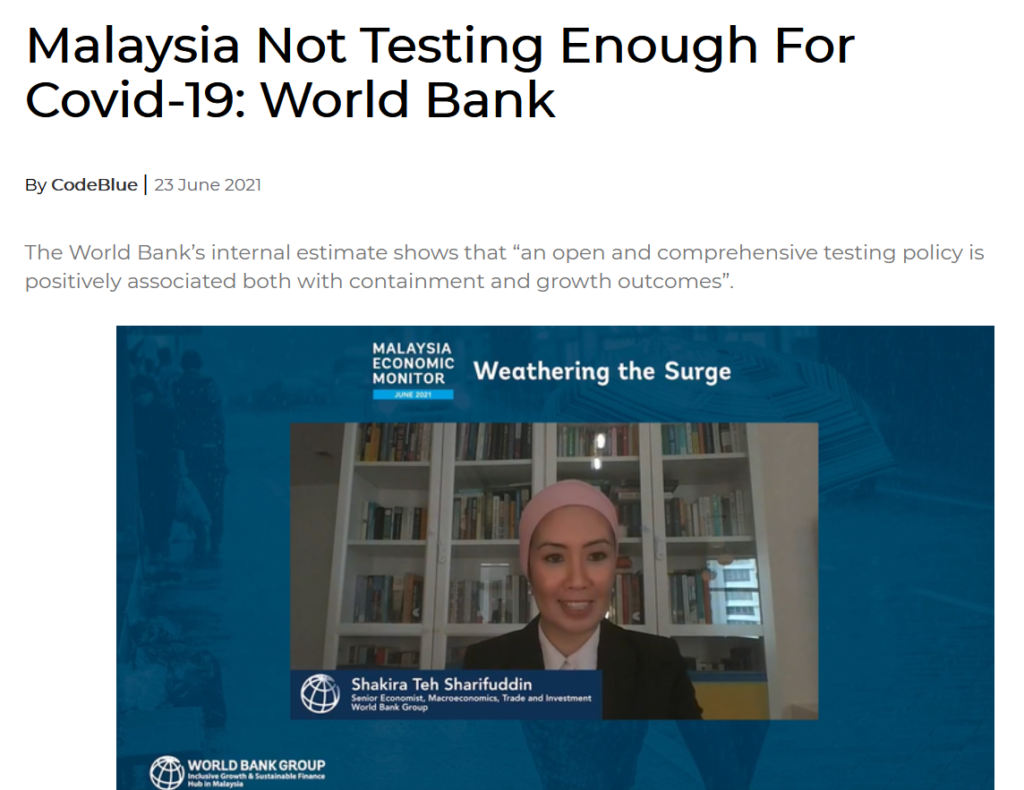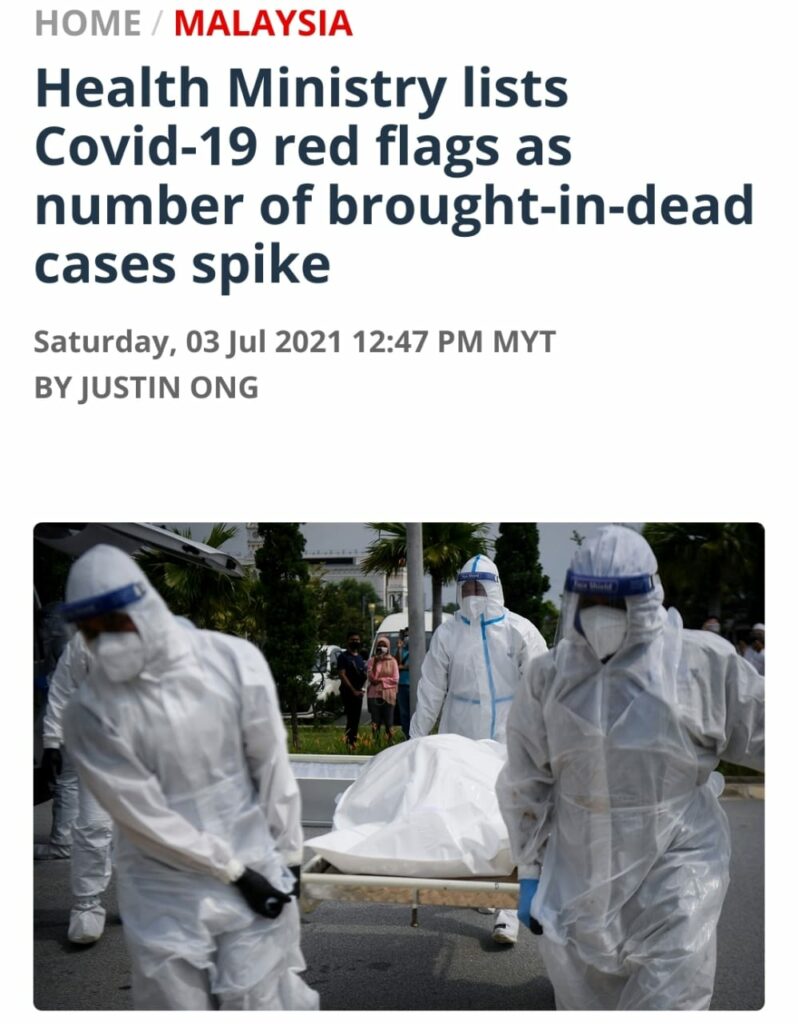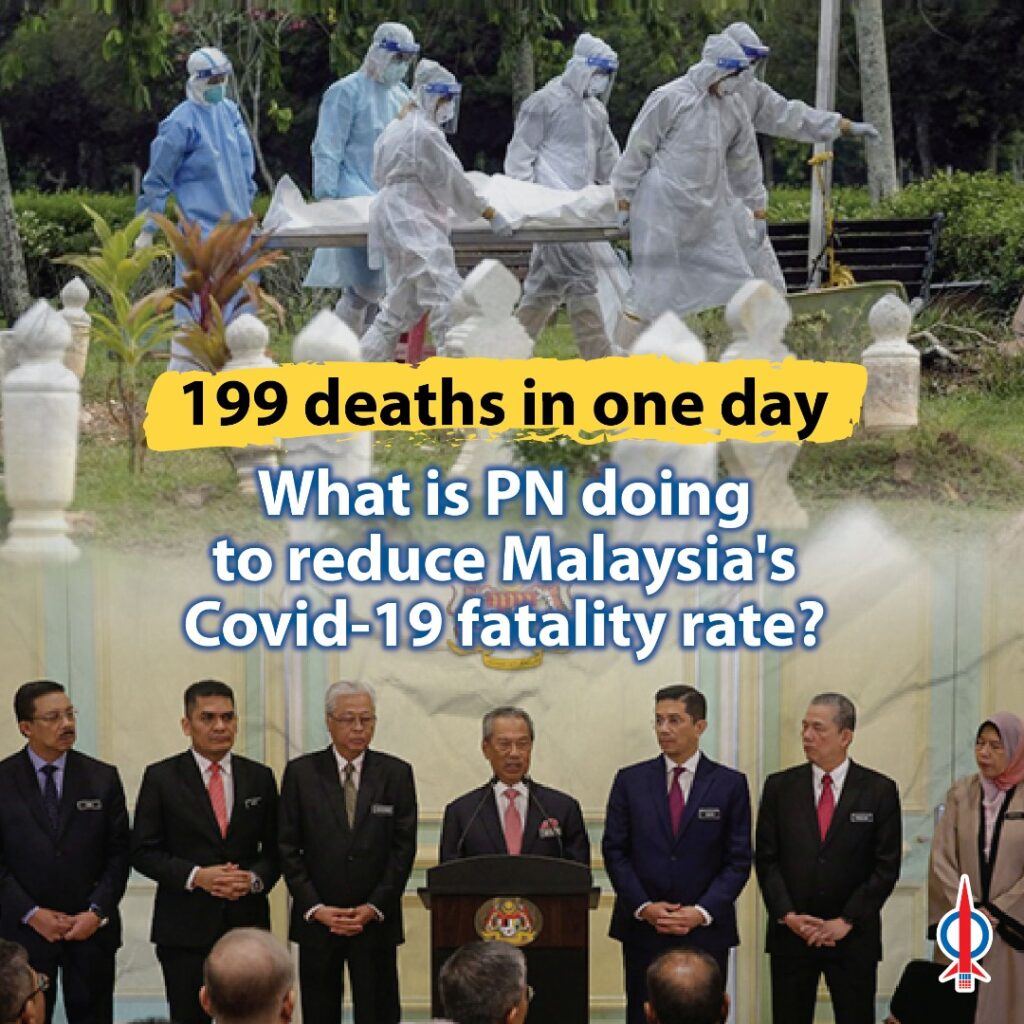
Press Statement
22nd July 2021
The Federal Government and the Ministry of Health must come out with a comprehensive National Testing Strategy to address the current severe lack of Covid-19 testing in our country as well as to be incorporated as an important element in our national recovery plan as we prepare to live with Covid-19 as endemic.
This National Testing Strategy must focus on comprehensive steps for each phase of intervention, whether containment or mitigation. It must have clear objectives and defined approaches and methods, in order to achieve the desired health outcomes while handling the current surge of cases, or in preparation for future outbreaks.
The first prong of such strategy must incorporate ways to increase its testing capacity to truly reflect the real disease burden on the ground.
Yesterday’s our country recorded a total of 95,772 testing but a high 12.51% positive rate which is more than 2x times the WHO recommended rate of less than 5%. This not only shows that the pandemic is out of control, but also shows that we are severely under-testing and as a result we may be failing to detect hidden cases and outbreaks in the community.

The fundamentals of any infectious disease control are quick detection and fast isolation. In order for those 2 fundamentals to succeed there must be sufficient screening and efficient contact tracing. Failure to adhere to these fundamentals is the main reason for the current government to control the current pandemic.
If we do not ramp up our testing and tracing significantly, we will not know how many carriers out there who can spread the virus, and the longer we take to isolate them, the higher the amount of people they can spread it to.
Mass testing enables people with Covid-19 to be diagnosed earlier, isolated, & treated early to prevent seriously ill cases & deaths. The slower we test & diagnose them, the higher likelihood they will be brought in late with more severe symptoms leading to overcapacity of hospital ICUs and a spike in Covid-19 deaths.

Just yesterday we recorded a record high 199 deaths, and a total of 33 “Brought in Dead (BID)” in our country. This proves how widespread the virus is in our community, the lack of testing and the breakdown of contact tracing as we see a significant percentage of people dying at home even before getting the needed medical care at the hospital.

That is why the government must build a national capacity to test at least 250k-300k daily by adjusting its strategy away from limited testing and over reliance on Rt-PCR, and mobilising all stakeholders including private hospitals, private clinics, and empowering factories workplaces, and even individuals to do self-testing via the now available self-test kits.
That is why the second prong of this National Testing Strategy has to be to prepare the people for the “new normal” which will include frequent and continuous testing either before going to work or even to attend a social event.
The government must look at firstly regulating such kits through the Medical Device Authority (MDA) to ensure its sensitivity and specificity, and then subsidising it to make sure it is affordable and accessible for all industries and even personal use. The government must make available cheap saliva-based RTK-Ag tests at commercial pharmacies and government health centres for any member of the public to do self-testing at home.
For industries, clear testing SOPs which include frequency of testing can be formulated based on risk-assessment of each industry. For high-risk industries, they can have more frequent testing compared to lower risk industries.
This then must be accompanied by a comprehensive reporting SOP for people to inform the authorities of a positive test as well as for it to be connected to the national system for contact tracing and case reporting.
Members of the public who are asymptomatic or have mild symptoms can be home quarantined and monitored virtually via video calls by either healthcare officers from the Ministry of Health or even the private General Practitioners (GPs). Anyone with symptoms or signs of deterioration (clinical stage 3 to 5) must be brought to hospital for immediate care.
All these has to be incorporated into our country’s national recovery plan as well as to prepare ourselves for the new normal to live with an endemic Covid-19. The government currently seems to be putting all their eggs into the vaccination basket, but while I acknowledge the importance of vaccination, we still cannot ignore the fundamentals of public health which is adequate testing for quick detection, and effective contact tracing for quick isolation and support.
Dr. Kelvin Yii
MP for Bandar Kuching



